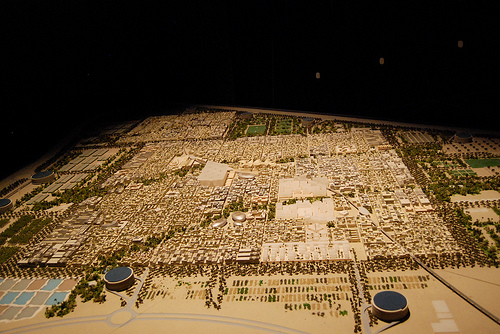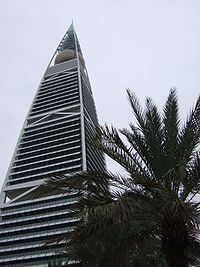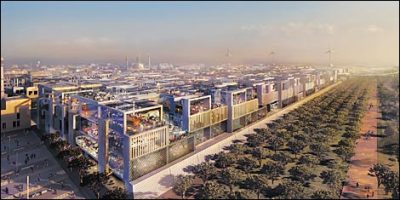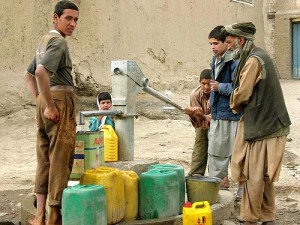 Foster+Partners, architect firm, claim projects like Masdar City are sustainable. Are they?
Foster+Partners, architect firm, claim projects like Masdar City are sustainable. Are they?
Meet Foster + Partners: one thousand employees work in their twenty-two offices scattered around the world. Their employees hail from 50 nations, which diversity they say leads to “creativity, innovation, and motivation.” They are the people behind projects such as Masdar City that have received extensive coverage from us in the past, and they have received dozens of prestigious rewards. Most significantly, Norman Foster, partner in the firm, was honored by the United Nations Association of New York at the 2009 Annual Humanitarian Awards Dinner for his efforts to encourage sustainability.
Indeed, sustainability is crucial to the F+P platform. They claim to have been champions of this philosophy since the 1970s, since before sustainability became an everyday term. They say, “while architects cannot solve all the world’s ecological problems, we can design energy efficient, socially responsible buildings and we can influence transport patterns through urban planning. Importantly, sustainability also implies a way of building that is sensitive to its location and the culture that has shaped it.”
The firm exhibits an impressive repertoire of advanced design that extends to every reach of the planet, including ten projects that are either on-going or have been completed in the Middle East.
Three of these in the UAE include 9 zeros on their US dollar price tags: the Al Raha Beach Development, $15 billion, Aldar Central Market, $1.36 billion, and Masdar City, $22 billion. Although each might be less energy intensive and require fewer raw materials than similar developments, these price tags are too heavy to be pegged sustainable.
Or does the language of sustainability need to be re-visited? Regardless of the rhetoric, behind these buildings is the same bigger, better, more mentality that is bringing us closer to what Erik Assadourian, Editor of the State of the World 2010 report, calls “the collapse of human civilization.” However, because our cultural conditioning denies the perilous state of our planet, it may be that F+P’s one thousand employees are not at fault.
Assadourian says that “driving cars, flying in planes, having large homes, using air-conditioning” may seem natural, because of our consumer conditioning, but “these patterns are neither sustainable nor innate manifestations of human nature.” So ingrained is the cue to consume, so interlaced in our collective self-worth, we can’t even see how unsustainable our habits really are. Nonetheless, preventing the collapse of our civilization “requires nothing less than a wholesale transformation of dominant cultural patterns.” We need to see these grand projects for what they really are: a giant step closer to our own demise.
More on green or unsustainable projects in the Middle East:
Dubai’s Burj Khalifa will tower in darkness during Earth Hour
Saudi’s National Prawn Company Comes Up With An Ecologically Sound Shrimp Idea
Middle Eastern LG Electronics Design Competition Concludes with Iranian Eco-Friendly Winner, Ali Kajuee






Very nice post. I just stumbled upon your weblog and wanted to say that I’ve really enjoyed surfing around your blog posts. In any case I’ll be subscribing to your rss feed and I hope you write again very soon!
Hi Kyra! It’s always so encouraging to hear from our readers, so many thanks for that.
This article is so true. It always amazed me that Abu Dhabi got the kudos for being green. Having lived and worked in the region for over 15 years the UAE is a bad choice for this type of development. I wonder how long it will take for some of these projects to materialise. We have all heard so much about the Al Raha Beach development but it seems to be stopped and the other projects scaled back.
Right on to whoever wrote this piece. The truth is spoken, right on the money. Kol HaKavod to GP. Keep up the good work. Best wishes, Yosef Gotlieb, PhD
I think that European and North American architects are usually the construction boom in this region to satisfy their own fantasies (and pocketbooks) and not environmental concerns. True green building, at least how I understand it, resonates with the local surroundings and does not create a massive carbon footprint in order to get LEED certification. Many blogs criticise Dubai calling it Dubious Dubai.
Absolutely agree that our lifestyles and expectations are hugely problematic. A powerful piece that I'll be thinking about for some time.